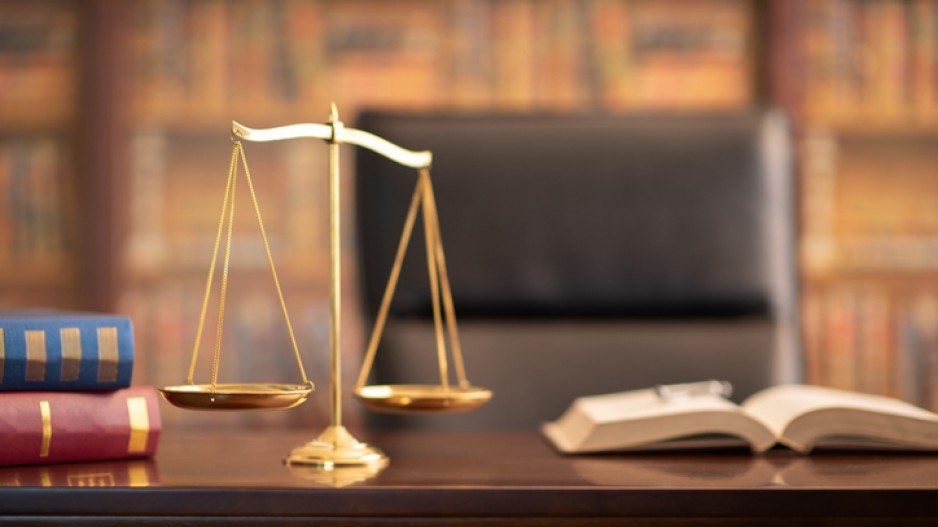The Law Society of B.C.’s one-month suspension and $4,000 fine of a Vancouver lawyer who mishandled residential school clients’ abuse compensation claims is drawing heavy criticsm from B.C.’s Tŝilhqot’in Nation.
A society decision said between 2009 and 2015, Stephen John Bronstein acted for 624 school survivors who made claims as part of B.C.’s Indian Residential Schools Settlement Agreement.
“His practice consisted almost exclusively of Indian residential school claims,” the society said in a May 20 decision, noting that under the agreement, Canada paid Bronstein’s firm $10.5 million in legal fees in relation to those claims.
The decision, said the firm, in some cases, kept a larger percentage of settlement amounts than allowed.
Bronstein admitted professional misconduct in 17 clients’ cases.
The society said the behaviour had persisted after a court had stepped in to address deficiencies in Bronstein’s law practice.
One society discipline panel member, Karen Snowshoe, called the penalty “grossly inadequate.”
Tŝilhqot’in National Government Chief Joe Alphonse said the case is another instance of First Nations people being let down.
“The failure to appropriately condemn this misconduct is yet another injustice and stain on the handling of the victims and survivors of residential schools,” Alphonse said. “Bronstein failed to protect his clients and created a situation of further victimization and trauma for survivors.
“This outcome makes a mockery of justice.”
In 2017, Bronstein was cited for six allegations of professional misconduct connected with that work.
First, the society found it failed to exercise due diligence regarding Ivon Johnny, a Tŝilhqot’in residential school survivor and paroled murderer the lawyer hired to help clients fill out application forms.
Johnny was convicted of first-degree murder in 1985 and sentenced to life imprisonment.
The society found Bronstein failed to adequately address, respond to or investigate complaints made about Johnny, including complaints that Johnny allegedly demanded money from the clients without justification. The society found those demands ranged from $5,000 to $20,000.
“It is unknown whether any of the complaints made against Mr. Johnny were true, and thus whether the Respondent’s lack of due diligence caused any clients actual harm,” the society said.
Second, the society said, Bronstein directed staff to remove the declarations that some or all of 17 clients had signed on their original application forms, and to attach these declarations to revised forms that his clients had approved over the phone but had never seen.
Third, the society said, Bronstein provided inadequate service to some clients, failed to advance their claims in a timely manner and improperly delegated to non-lawyers such as Johnny the task of explaining his contingency fee agreement to prospective clients.
Residential Schools Adjudication Secretariat chief adjudicator Daniel Ish and adjudicator Catherine Knox became involved, meeting with Bronstein to discuss allegations that Johnny was allegedly encouraging claimants to fabricate or embellish their IAP claims. They also advised the Respondent that allegations had been made that Mr. Johnny had demanded that claimants provide him with a portion of their settlement funds, sometimes accompanied by threats or extortion.
Johnny was arrested in 2012 and his parole was suspended, apparently because of concerns regarding his treatment of Bronstein’s clients.
The society said Bronstein’s misconduct takes on added significance given the historical, social and legal context surrounding the representation of residential school survivors.
“The law had failed these claimants once before, in a very serious way. The intention of the [settlement] process was to start a journey towards healing and remediation,” the society said. “In these circumstances, the respondent’s misconduct can only be seen as extremely serious. The need for general deterrence looms large. So too does the need to ensure that the public has confidence in the legal profession and the administration of justice more generally.”
Snowshoe, however, called the society a colonial institution and said the penalty does little to maintain confidence in the legal profession.
“The courts and other law societies have recognized that this particular class of people are inherently vulnerable and require court protection, as well as the utmost sensitivity and care by lawyers,” Snowshoe said. “Instead of providing the utmost care and offering protection, the respondent did the opposite by exposing his clients to further harm and re-victimization.”
Alphonse said the case required more investigation into Johnny’s actions.
“Our people have been through enough without having to contend with further ignorance and failure of the Canadian legal system,” he said. “It took a lot of courage for witnesses to come forward, and this is what they have to show for it – nothing. Bronstein basically got off with no repercussion. Once again the system has let us down.”



